There’s a lot of preventive maintenance that we do for our car but most of us miss out on taking care of the battery. We change the oil every now and then, we change the oil filter too. But we end up forgetting what’s the most dangerous bomb in the car.
The battery being extremely prone to corrosion, it can damage its surroundings if not take care of. But more importantly, we got to know where things might go wrong with a battery. Let’s go over every hazard that you might ever have to face.
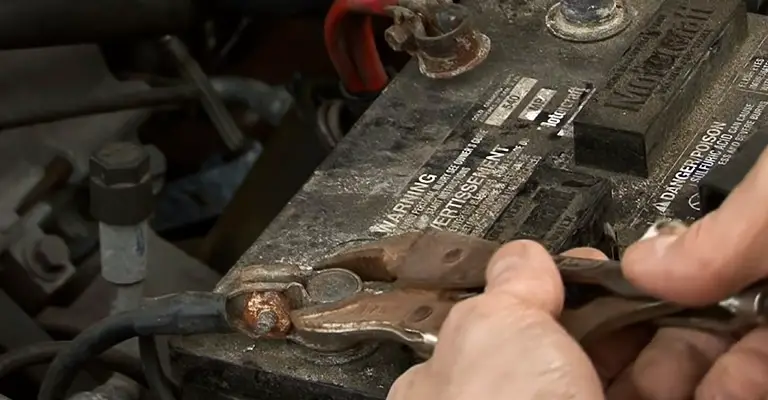
What Causes a Car Battery to Overheat?
Mostly it’s coolant and things related to it. Before we march on to prevent corrosion, let’s get acquainted with the prime reasons that overheat your car battery.
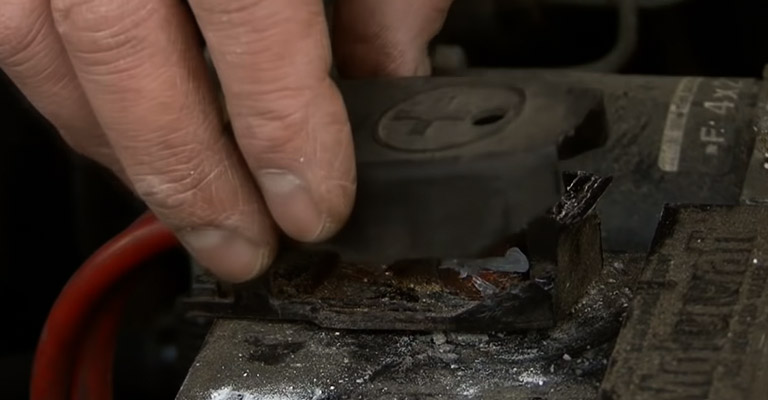
Coolant Leaking
Usually, coolant is liquid or gas, which plays a vital role to sustain engine heat balance by removing excess heat. Leaks in the water pump, hoses, thermostat housing head gasket, and few other things can all lead to a low coolant level. An insufficient amount of liquid can easily cause your car to overheat.
Bad Thermostat
A vehicle’s thermostat is the pivotal valve in the cooling system that is designed to regulate the coolant from the engine to the radiator. A broken thermostat will halt the engine from operating in its ideal temperature while rising temperatures and emissions over time. In this case, it is a good idea to get your vehicle checked first.
Failed Water Pump
The water pump is the primary component responsible for operating smoothly while maintaining a constant operating temperature. When the water pump fails to operate properly, it cannot circulate coolant through the engine block. If it is not repaired or replaced immediately, this will result in an overheating situation.
Radiator Malfunction
Radiators and the fans are heat exchangers used to reduce excess heat generated from the engine. Leaks, rust, clogging in the radiator can lead to disruption in radiator function and lastly radiator failure. If either of these things happens, your vehicle will face unnatural temperature rise.
Faulty Belts and Hoses
If a belt is worn out or loose or if coolant hoses are blocked, ruptured or leaking, it cannot maintain constant coolant and airflow. This can’t help to decrease temperature and leads to overheating.
Low Motor Oil
Motor oil can do a lot more than just lubricating engine parts. It helps to remove excess heat from your vehicle’s engine as well. Therefore, if you are experiencing unexpected overheating problems, then firstly you should check your vehicle’s oil level.
How to Prevent Corrosion on Car Battery?
Tips and tricks are simple and easy on a broader scale. But what lies in the entrails matters the most. Here we clarify…
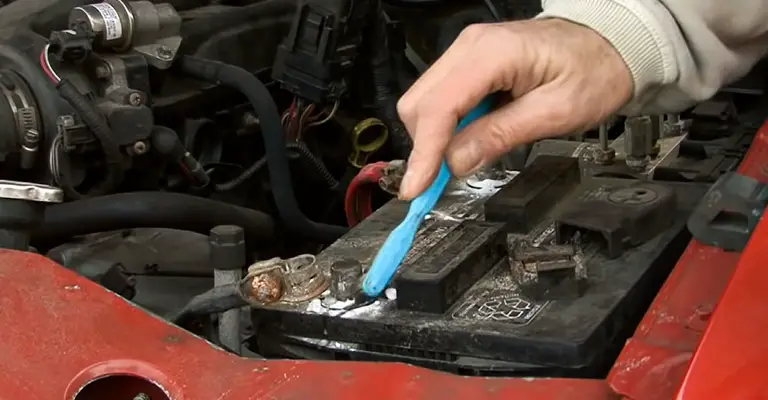
Apply Petroleum Jelly
Applying the jelly on both positive and negative terminals is one of the safe and effective ways of prevention. Especially in winter, as the low temperature makes the battery work even harder which may result in corrosion on the terminals. And, the jelly will protect the battery from cranking all winter.
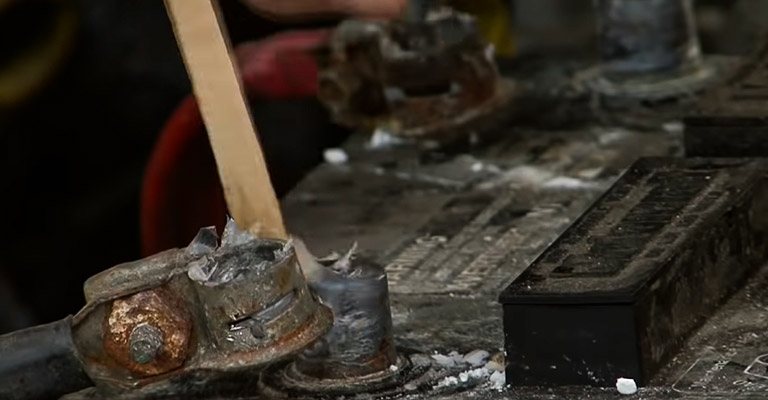
Clean Your Battery’s Terminals
Cleaning your car’s battery terminal is easy and requires a few simple steps. As car batteries contain acid, it may cause an accidental injury. Before doing anything, take proper cautions. Wear gloves and eyeglasses properly to protect you.
After these, disconnect positive and negative terminals respectively. Then take a battery terminal ranch to twist the battery cable’s nut counter-clockwise. This will loosen the nut so that you can remove the cable. Now, apply anti-corrosion washers or little amounts of dielectric grease on the terminals and thoroughly clean.
You can use baking soda to neutralize the acidic deposits as well. For this, you only need a mixture of 2 tsp. of soda and 2 cups of water. Pour this mixture on both terminals and let it sit until you see corrosion break away. Lastly, use a stiff brush to remove any remaining corrosion.
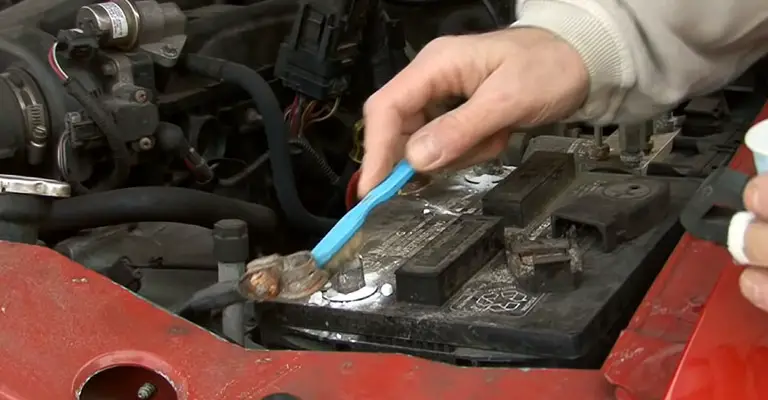
Check Your Battery Regularly
Both being overcharged and discharged can be a reason for corrosion. Corrosion on the positive terminal means the battery is overcharged and alternatively, corrosion on the negative terminal means it is discharged. That’s why it is essential to monitor the state of the terminals frequently so that it is neither overcharged nor discharged.
Conclusion
Corrosion is a sign of a serious issue and is often neglected among car owners. At one time or another, many car users face this problem and most people replace their batteries as soon as they notice it. However, the most inexpensive solution is to know what causes it and how you can fix it.
As you can see several scenarios can cause overheating. And, corrosion may be a cause as well. In most cases, regular maintenance should be enough. But, you should often clean your battery terminals using anti-corrosion washers, dielectric grease, or use simple petroleum jelly for better results.
Leave a Reply